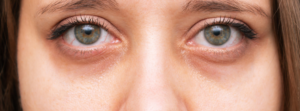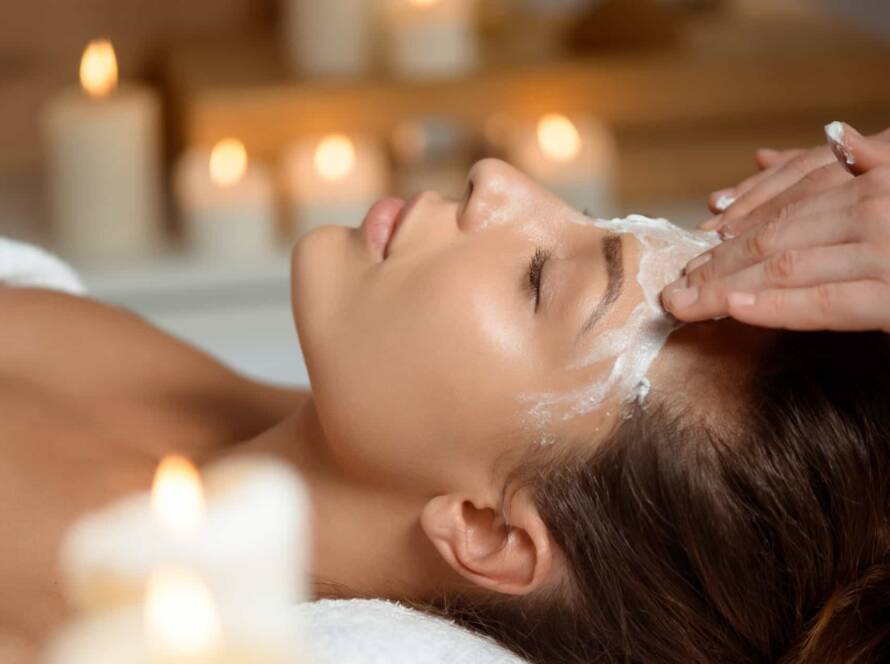Dark Circles Formation: The Role of Sleep and tips for Improving Sleep Quality
RX REJUVENATE IS THE BEST DARK CIRCLES TREATMENT CLINIC IN DELHI NCR
Introduction:
Dark circles under the eyes are a common cosmetic concern that can affect individuals of all ages and skin types. While genetics, lifestyle factors, and skincare habits can all influence the appearance of dark circles, one often overlooked factor is sleep quality. Adequate sleep is vital for typical fitness and well-being, inclusive of pores and skin fitness. In this comprehensive guide, we will explore the role of sleep in dark circle formation, the mechanisms underlying this phenomenon, and provide practical tips for improving sleep quality to reduce the appearance of dark circles.
Understanding the Link Between Sleep and Dark Circles:
The relationship between sleep and dark circles is complex and multifaceted. While lack of sleep is often associated with the development of dark circles, the connection runs deeper than simply getting enough hours of shut-eye. Sleep quality, sleep position, and sleep disorders can all influence the appearance of dark circles through various physiological mechanisms.
1. Poor Circulation: During sleep, the body undergoes crucial repair and regeneration processes, including the removal of metabolic waste products and toxins from the skin. Adequate blood circulation is essential for delivering oxygen and nutrients to the skin cells, promoting healthy cellular turnover and collagen production. Poor circulation, often exacerbated by inadequate sleep or poor sleep quality, can lead to sluggish blood flow and accumulation of deoxygenated blood in the under-eye area, contributing to the appearance of dark circles.
2. Increased Inflammation: Chronic sleep deprivation or poor sleep quality can trigger inflammatory responses in the body, leading to increased production of pro-inflammatory cytokines and oxidative stress. Inflammation can disrupt the delicate balance of collagen and elastin in the skin, leading to collagen degradation, skin thinning, and increased visibility of blood vessels and pigmentation. This can exacerbate the appearance of dark circles and contribute to premature aging of the skin.
3. Fluid Retention: During sleep, the body undergoes a natural process of fluid redistribution, with excess fluids being eliminated through the lymphatic system. However, poor sleep quality or sleep position can disrupt this process, leading to fluid retention in the under-eye area and puffiness. Fluid retention can create shadows and discoloration under the eyes, making dark circles appear more prominent.
Rx Rejuvenate is the best aesthetic clinic in Delhi
Rx Rejuvenate is the best beauty clinic in Delhi
4. Altered Skin Barrier Function: Sleep plays a crucial role in maintaining the skin’s barrier function, which helps protect against environmental stressors and maintain optimal hydration levels. Poor sleep quality can compromise the skin’s barrier function, leading to increased transepidermal water loss (TEWL) and dehydration. Dehydrated skin is more prone to fine lines, wrinkles, and increased visibility of blood vessels, all of which contribute to the appearance of dark circles.
Practical Tips for Improving Sleep Quality and Reducing Dark Circles:
1. Establish a Consistent Sleep Schedule: Go to mattress and awaken on the identical time each day, even on weekends. Consistency enables adjust your body’s inner clock and promotes higher sleep quality.
2. Create a Relaxing Bedtime Routine: Develop a calming bedtime routine to signal to your body that it’s time to wind down. This may also encompass sports together with reading, mild stretching, or taking a heat bath.
3. Create a Comfortable Sleep Environment: Make certain your bed room is conducive to sleep through preserving it cool, dark, and quiet. Invest in a comfortable mattress and pillows that provide adequate support for your body.
4. Limit Screen Time Before Bed: Avoid using electronic devices such as smartphones, tablets, and computers in the hour leading up to bedtime. The blue light emitted by these devices can disrupt melatonin production and interfere with your ability to fall asleep.
5. Watch Your Diet and Hydration: Avoid heavy meals, caffeine, and alcohol close to bedtime, as they can interfere with sleep quality. Instead, choose light, nutritious snacks and live hydrated at some stage in the day.
6. Practice Relaxation Techniques: Incorporate relaxation techniques such as deep breathing, meditation, or progressive muscle relaxation into your bedtime routine to help calm your mind and body.
7. Exercise Regularly: Engage in regular physical activity, but avoid vigorous exercise close to bedtime, as it can stimulate your body and make it difficult to fall asleep. Aim for at the least half-hour of moderate-depth workout maximum days of the week.
8. Manage Stress: Find healthy ways to manage stress and anxiety, such as practicing mindfulness, journaling, or talking to a trusted friend or therapist. Chronic stress can disrupt sleep patterns and contribute to the development of dark circles.
9. Consider Sleep Position: Sleeping on your back with your head elevated can help prevent fluid retention and puffiness in the under-eye area. Avoid sleeping on your stomach, as it can put pressure on your face and exacerbate the appearance of dark circles.
10. Seek Professional Help if Needed: If you consistently struggle with sleep issues despite trying various strategies, consider seeking help from a healthcare professional. They can help identify underlying sleep disorders and develop a personalized treatment plan to improve your sleep quality.
Rx Rejuvenate is the best skincare clinic in Delhi
Rx Rejuvenate is the best derma clinic in Delhi
Conclusion:
In conclusion, sleep quality plays a significant role in the formation of dark circles under the eyes. Poor sleep quality can lead to increased inflammation, fluid retention, and altered skin barrier function, all of which contribute to the appearance of dark circles. By prioritizing sleep hygiene, establishing a consistent sleep schedule, and practicing relaxation techniques, you can improve your sleep quality and
reduce the appearance of dark circles. Remember that achieving optimal sleep quality is a journey that requires patience and dedication, but the benefits for your overall health and well-being, including your skin health, are well worth the effort
RX REJUVENATE IS THE BEST DARK CIRCLES TREATMENT CLINIC IN DELHI NCR





